Space
Sign up for our newsletter
We summarize the week's scientific breakthroughs every Thursday.
-
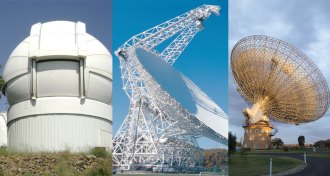 Space
SpaceSearch for E.T. gets financial boost
Search for extraterrestrial intelligence gets a $100 million donation from a Russian entrepreneur.
-
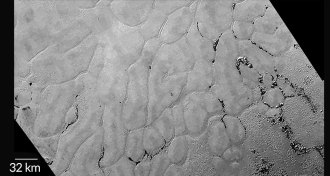 Planetary Science
Planetary ScienceLatest dispatch from Pluto reveals frozen plains, icy hills and more
Polygon plains, windswept hydrocarbons, and more moons were tantalizing details revealed about Pluto in the latest data from New Horizons.
-
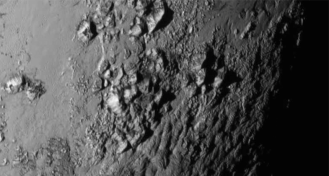 Planetary Science
Planetary ScienceMission to Pluto: Live coverage
The New Horizons spacecraft is scheduled to fly by Pluto on July 14. Check back often for frequent updates on the status of the mission, updates from mission control, and the latest images.
-
 Neuroscience
NeurosciencePutting time’s mysteries in order
Investigating both the orderly and disorderly dimensions of time provides the focus for a special issue of Science News.
By Eva Emerson -
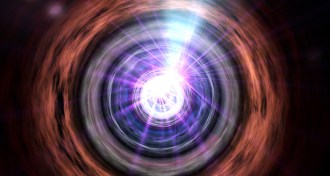 Astronomy
AstronomySource of blazars’ super brightness comes into focus
Astronomers take a close look at a blazar, a galaxy whose central black hole emits gamma rays and other high-energy material toward Earth.
By Andrew Grant -
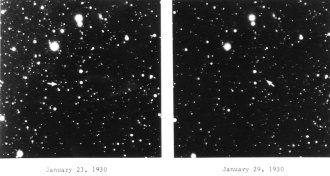 Planetary Science
Planetary SciencePluto: A timeline of 85 years of discovery
Several observations in the last 85 years have given astronomers a little more information about Pluto, and the July 2015 flyby will offer the closest look yet at the solar system's far-flung satellite.
-
 Physics
PhysicsThe arrow of time
Gravity may explain how time always runs forward, even though the laws of physics should permit it to run backward.
By Andrew Grant -
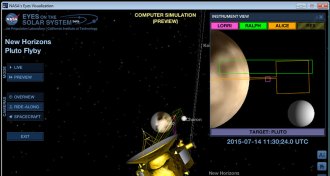 Planetary Science
Planetary ScienceGet New Horizons’ views of Pluto
The “Eyes on Pluto” app lets you ride alongside New Horizons for a simulated preview of the spacecraft’s impending encounter with the dwarf planet.
-
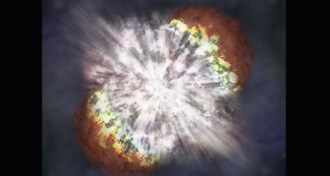 Cosmology
CosmologyBrightest supernova breaks record
A recent supernova shines with the light of 600 billion suns.
-
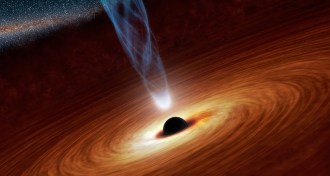 Astronomy
AstronomyMassive black hole lurks in lightweight galaxy
A heavyweight black hole grew to weigh as much as 7 billion suns within the first 2 billion years after the Big Bang.
-
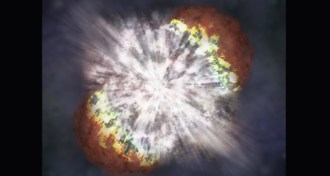 Astronomy
AstronomyExploding star breaks record for brightest supernova
A recent supernova shines with the light of 600 billion suns.
-
 Planetary Science
Planetary SciencePluto is only a ‘day’ away
Just one Pluto-day to go until New Horizons tears past the dwarf planet and its moons.